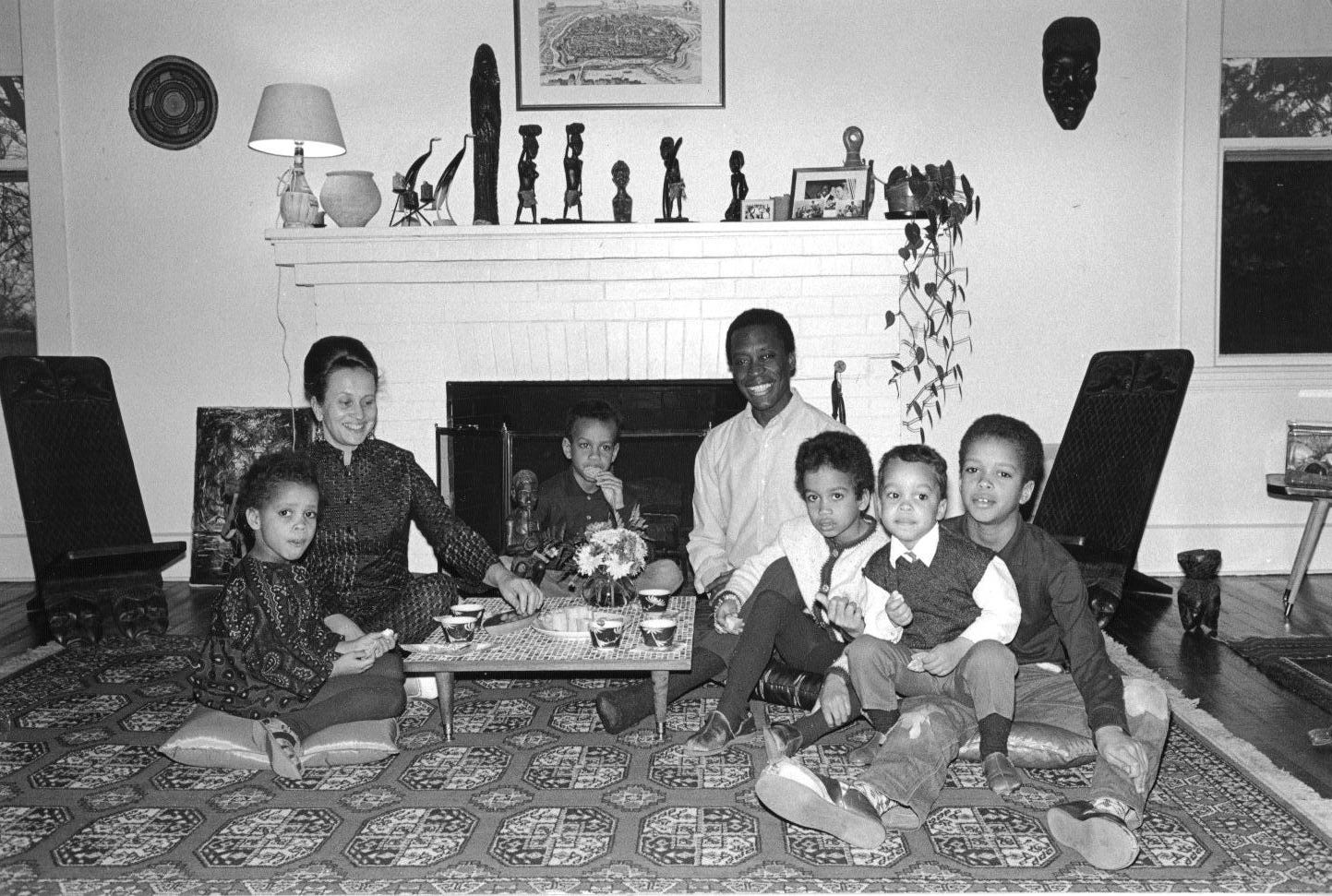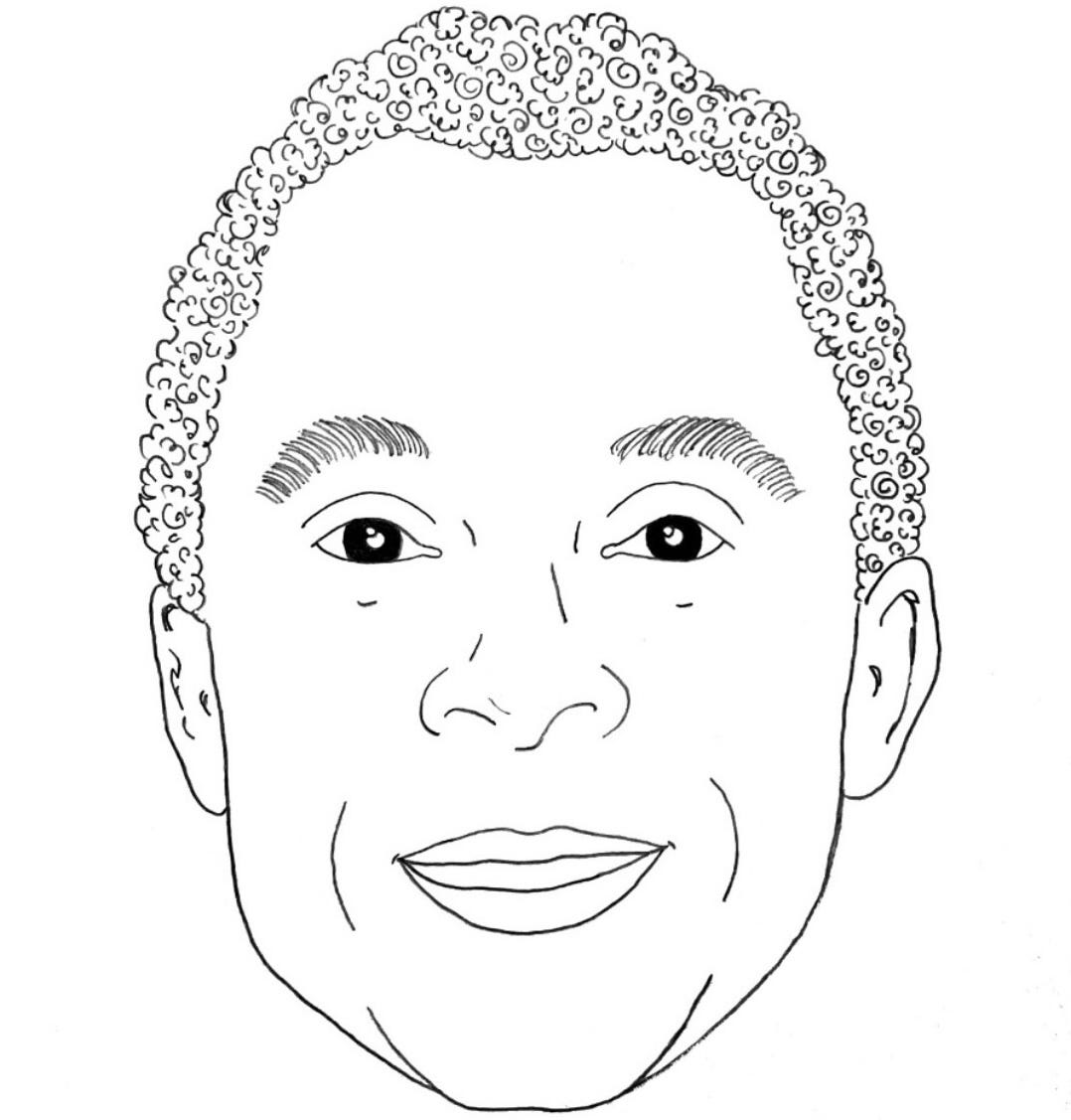No. 097 - Judy Collins’s “Both Sides Now” changed my life
Decades after Charlie Johnson’s family moved to America, he uncovers the challenges his parents tried to keep to themselves
🌸 A Grace favorite
This Song Changed My Life is an independent music publication featuring weekly essays from people all around the world about the songs that mean the most to them. Created (and illustrated) by Grace Lilly.
Enjoying the series? Support here to keep the good stuff coming 😊
• 4 min read •
My musical awakening began with a Beatles 45. “Hey Jude” on one side, “Revolution” on the other, a green apple in the center. Music permeated my childhood home: soundtracks from “Hair,” “Jesus Christ Superstar,” “The Sound of Music,” Jackson 5 albums, alongside Beethoven, Mozart, and my mother’s piano playing. Yet, Judy Collins’s “Both Sides Now” resonated deeply, its impact a slow, poignant realization. This is the song that changed my life.
I was one year old when my family moved to America in 1966. I had four older siblings who were born in Vienna, Austria; I was born in Kinshasa, Zaire; and now we all lived in Newton, Massachusetts. My African-American father met my German mother at a jazz club in Frankfurt, Germany. They fell in love, got married, moved to Austria where my father finished his post-graduate education, then moved to Africa where he had his first university teaching post; and in a seven-year period, my mother had five children. That was all before moving to America.
My mother grew up in a Catholic middle-class family and went through adolescence during World War II. As a young woman she was independent and mildly rebellious; she sometimes wore pants at a time when dresses were the accepted standard for women. She made her own hats. But she melded easily into being a devoted wife, mother, and homemaker. She cooked wholesome meals, grew beautiful flowers, tended a garden of vegetables, designed and sewed her own clothes and some of ours, built furniture, and decorated our homes to showcase our multicultural, multilingual existence. She made each and every one of her children feel like we were her favorite.
My father grew up in the South Side of Chicago. He was the first in his family to graduate from high school and go to college; and then on to get a PhD in economics. He became fluent in German, French, and Russian. He was fully focused on his career and endeavoring to provide for his large family, with a mission to give us better than what he had growing up.
My childhood was idyllic. I spent tons of time playing outdoors, swimming, and riding my bicycle. I participated in many sports and had lots of friends. I was a happy kid living my best life. But in 1976, my parents got divorced. Their separation came as a shock to me and my siblings. Up until then, my parents managed to make us feel safe and secure, and the challenges of their marriage were kept to themselves. We felt loved and we loved them. Unbeknownst to us, their troubles began soon after we moved to America.
America was “home turf” for my father. But that did not shield him from the stress that comes with navigating a high-profile career as a black man in a white dominated professional world. My mother faced challenges with language and culture as part of her new life in a new country. This included navigating racial discrimination toward her biracial children and unexpected hostility toward Germans. Their contrasting experiences and pressures were enough to cause the erosion of their relationship. I came to learn, however, that my father’s infidelity was a core reason. I knew it to be true, but did not know any details. I came to learn some recently.
My father passed away in 2021 and among the documents, photographs, and other artifacts left for us to sort through was a series of journals starting in 1970. The journals revealed my father’s personal struggles and the complexities of his character. He expressed deep insecurities about his professional standing, a burden he carried alongside his personal failings. What I read sparked some empathy for my father but a deeper sadness for my mother.
Judy Collins released “Both Sides Now” in 1967. I remember it not only as a song that played on the soundtrack of our life through the late ‘60s and early ‘70s but also as one that my mother liked. That could have been because it expresses heartache, confusion, and sadness; a wistfulness my mother must have been feeling at that time. I did not know what she was going through but the song created an imprint for me; that music can express authentic emotions however sad or painful they may be.
The song’s writer, Joni Mitchell, not only captured the full range of emotions of one person, but also how they span the journey of life. Songs with such lyrical and melodic quality make up the soundtrack of my life; songs that have encouraged me through doubt and insecurity, calmed me during upheaval and anxiety, comforted me in heartache and disappointment. Later in life when I penned lyrics for some of the songs my own band created, it felt natural that I took this same approach.
“Both Sides Now” set me on a certain musical journey that has endured. In my world, music is for naught if, beyond the rhythm and the verse, it has no authentic connection to our feeling capacity. Now some 50 years later, this song remains a touchstone for leaning into feeling wistful or melancholy — especially over a relationship. ◆
About Charlie
Charlie Johnson is a dual-national German-American designer and educator. He is an Assistant Teaching Professor at Carnegie Mellon University, Principal at Driven By Charles LLC design consultancy, and founding member of the band The Lasts.
Website drivenbycharles.com
Instagram @thecharliehaus
⭐ Recommended by
Tracy McKenna (No. 080)
Every TSCML writer is asked to recommend a future contributor, creating a never-ending, underlying web of interconnectivity 🕸️
This Song Changed My Life is open to submissions. For consideration, please fill out this simple form.
From the Archive
No. 046 - Built to Spill's “Car” changed my life
A declaration of love and a change of plans on the Fourth of July
Categories
Friendship • Family • Coming of Age • Romance • Grief • Spirituality & Religion • Personal Development
Recommended
Top 10 • Grace's Favorites • Secret
If you enjoyed this post, “like” it & leave a comment 🧡
If you like this publication and want to learn more about me and my other projects, check out my personal newsletter, Weirdly Good <3












A beautiful reflective essay, thank you Charlie and Grace.